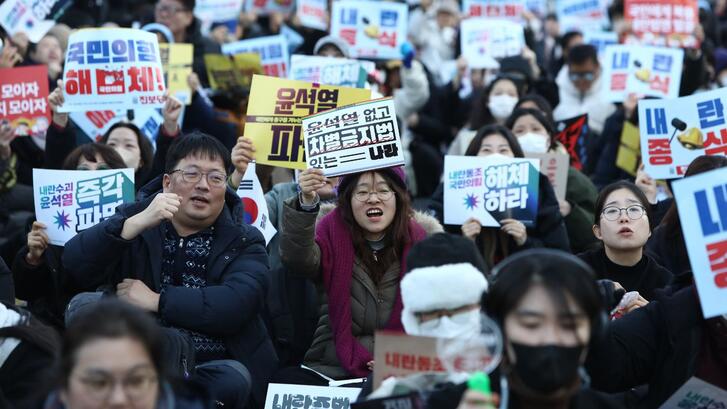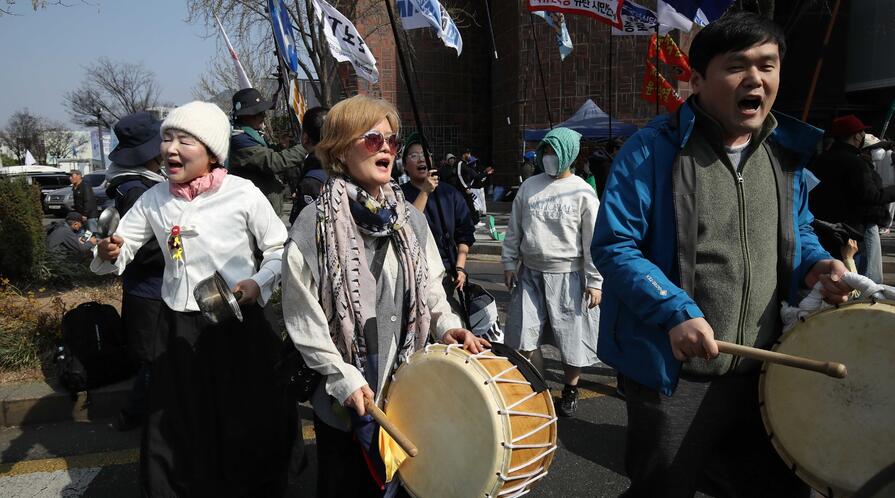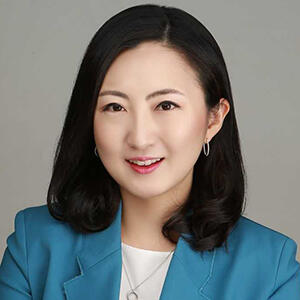Is South Korea’s New President Good for Democracy?
This commentary was first published in the Journal of Democracy.
Lee Jae-myung of the Democratic Party won South Korea’s June 3 presidential election with 49.4 percent of the vote. The outcome was widely anticipated, given a political climate that strongly favored the liberal camp in the aftermath of the impeachment of President Yoon Suk Yeol. Still, Lee’s victory was not as overwhelming as some might have expected. With 99.6 percent of the votes tallied, the two main conservative candidates — Kim Moon-soo and Lee Jun-seok — together garnered a slightly higher combined vote share of 49.5 percent (41.2 percent and 8.3 percent, respectively) Why, then, did Korean voters ultimately choose Lee Jae-myung but with a measured endorsement rather than a landslide victory, and what does it mean for Korean democracy?
This election followed a period of intense political turmoil that began with President Yoon’s declaration of martial law on December 3 of last year and his impeachment just two months ago. While the election results were expected, they still raise important questions about the future of Korean democracy. Do the last six months reflect the resilience of democratic institutions — capable of self-correction through legal and electoral processes — or, have these events exposed the fragility of Korea’s democracy, with its deep political divisions and public distrust in leadership?
In many ways, the answer is both. Civic engagement and a peaceful transfer of power during such a challenging episode suggest a strong democratic foundation. At the same time, the election outcome still shows a highly polarized electorate, underscoring the hurdles that lie ahead for Korean society and politics.
Related Research by Gi-Wook Shin
Democratic Crisis and ReformSign up for APARC newsletters to receive our scholars' commentary and analysis >
2017 vs. 2025
This was the second time in a decade that Korea held a snap presidential election. The first occurred eight years ago, following the impeachment of President Park Geun-hye. In this regard, Koreans have grown familiar with the impeachment process and snap elections. In both instances, the impeached presidents — Park in 2017 and Yoon in 2025 — were conservatives, and both elections resulted in liberal victories, with Moon Jae-in (2017–22) and now Lee Jae-myung taking office.
The 2025 election, however, differs significantly from the 2017 contest, with important implications for Korean democracy.
First, the impeachment process this time was far more divisive. In 2017, liberal groups mobilized millions in mass protests demanding Park’s removal, and conservatives largely accepted the outcome without major resistance. In contrast, Yoon’s impeachment was extremely contentious, sparking counterprotests from conservative groups. Waving “Stop the Steal” signs, far-right movements gained strength, determined not to see a repeat of 2017, which not only led to defeat at the polls but also a brutal campaign of political retribution by the ensuing liberal government.
Second, this polarization profoundly influenced voting behavior. Even conservatives who criticized Yoon’s declaration of martial law ultimately rallied behind Kim, a candidate less critical of the controversial order. The left-right political divide had deepened during the Moon and Yoon administrations. In 2017, a centrist candidate like Ahn Cheol-soo could attract more than 20 percent of the vote. In 2025, however, such space for a centrist voice has all but vanished. The election became a fierce contest between liberals (Lee Jae-myung) and conservatives (Kim Moon-soo and Lee Jun-seok), reflecting the polarized electorate.
Third, the tense political atmosphere left little room for substantive policy debate. While important topics including artificial intelligence, energy, climate change, social reconciliation, and foreign policy were included in their campaign pledges, discussions around these issues remained superficial at best. Instead, the campaign was dominated by harsh personal attacks and negative rhetoric from all sides.
Reformer or Strongman?
Given that this was a snap election, the new administration will assume office immediately on June 4 without the usual transition period. What can we expect from the new leader, particularly regarding Korea’s democratic future?
Lee’s appeal lies in his image as a pragmatic reformer, someone who speaks to economic struggles and social inequalities facing ordinary Koreans. His personal story itself resonates deeply: Born into poverty, he overcame significant hardship to become a human-rights lawyer, then rose through the political ranks as mayor of Seongnam, a city near Seoul, and later as governor of Gyeonggi Province, the most populous province in the country, before taking the Democratic Party leadership. This dramatic personal and political ascent has inspired many Korean citizens.
Yet Lee’s candidacy has not been without controversy. He remains under multiple criminal investigations and court trials related to charges of bribery, corruption, and breaking election laws, and his often-combative style has created the perception of a deeply polarizing figure. Many conservatives view Lee as a radical populist who shows insufficient regard for democratic norms and institutional checks.
Given the mixed perception and expectation surrounding President Lee, what kind of leadership can we expect from his administration? Two possible paths seem to lie ahead for the new leader still relatively unknown to the outside world: one resembling the approach of former president Moon Jae-in, and the other inspired by the legacy of Korea’s first liberal president, Kim Dae-jung (1998–2003). The direction Lee chooses will have major implications for the future of Korean democracy.
Lee may follow in the footsteps of Moon Jae-in, leading a campaign of political retribution that pushes Korea toward illiberal democracy. Lee has personal reasons for political resentment: He was aggressively investigated by the Yoon administration and still faces ongoing legal challenges. He has spoken publicly about the need to root out what he calls “forces of insurrection,” raising concerns that he might pursue a hardline campaign similar to Moon’s controversial efforts to “eradicate deep-rooted evils.”
Lee’s party has also pledged to advance judicial reforms that could weaken the Supreme Court, which on May 1 overturned an earlier acquittal by the Seoul High Court of Lee’s criminal charge of election-law violation. With his party now holding a parliamentary majority, traditional checks and balances could be on the line. If Lee uses his consolidated executive and congressional power to settle political scores, the result will only deepen social divisions and facilitate democratic backsliding. In such a scenario, he risks being viewed in Korea and elsewhere as yet another strongman leader in a world where such figures have been on the rise.
Alternatively, Lee could chart a course akin to that of former president Kim Dae-jung, who is widely considered a respected statesman and reformer. Kim overcame intense personal hardship, including a death sentence under a military regime, and yet chose reconciliation over revenge when he took power. He formed a coalition with conservative leader Kim Jong-pil and guided the country through the Asian financial crisis with a focus on national unity and pragmatic reform. Unlike Moon, who turned over power to the conservatives after five years, Kim effectively enabled a liberal succession.
Lee, often viewed as less ideological and more pragmatic than Moon, could take a similar path — one centered on cooperation, healing, and practical solutions. This possibility appears plausible given that his key advisors on both domestic and foreign affairs are not cut from the same cloth as Moon’s inner circle. By emulating Kim’s legacy, Lee could rise above political divides and earn broad national and international respect.
What Lies Ahead?
The political drama of the last six months ended with this election, but its impact on Korea’s democracy will be enduring. On one hand, the peaceful resolution of a snap election, especially following the highly contentious impeachment process, demonstrates the strength and resilience of Korean democratic institutions. Voters remained highly engaged (turnout was 79.4 percent, the highest since 1997), and the electoral process held firm under pressure.
On the other hand, the deep partisan divides expose fissures in Korea’s democratic fabric. Mistrust in political elites, a divided society, and a highly polarized media environment often dominated by sensationalism continue to threaten constructive democratic dialogue. Moreover, the rise of populist rhetoric on both the left and right reflects an electorate increasingly driven by emotional appeals or identity politics rather than substantive policy debate or national vision. Without a concerted effort by both liberals and conservatives toward reconciliation, political polarization is likely to deepen. Bridging that divide will be one of the most critical and difficult tasks for Korean democracy.
Despite his election victory, Lee faces a challenging road ahead, both personally and politically. Since the Supreme Court overturned Lee’s acquittal of violating election law, the case is set to go back to the Seoul High Court for retrial on June 18. While the final ruling is likely to be delayed until after his term ends, the case may continue to cast a shadow over his integrity and credibility as the country’s top leader.
Lee also has the daunting task of delivering the institutional reforms promised during his campaign. In particular, he needs to follow up on his pledge to replace the current single five-year presidential term with a four-year term allowing for a subsequent reelection. This change could bring political stability, as presidents would have an incentive to perform well during their first term to secure a second one. Furthermore, a potential eight-year presidency would provide more time to implement long-term policies. Past presidents have made similar promises, but none have succeeded in realizing them. It remains to be seen whether Lee’s administration can rise above partisan politics and rebuild public trust through meaningful reforms.
Ultimately, this election has been both a stress test and a reaffirmation of Korea’s democratic resilience. It highlights the urgent need for democratic renewal, while demonstrating that, even in times of deep political division, democratic institutions and norms can endure. This lesson holds global relevance, particularly for the United States, where democracy is also being put to the test.
Gi-Wook Shin's Election Analysis in the Media
Lee Jae-myung begins his road to power. Can he fulfill his promises amid numerous challenges?
Caixin Media, June 6 (Chinese, subscription) quoted)
He survived a knife attack, stormed Parliament, and campaigned in a bulletproof vest. Now he's going to heal a country.
Politiken, June 4 (Danish, subscription) (quoted)
Lee Poised for Decisive Win in South Korea's Snap Election
AFP, June 3 (quoted)
New South Korean President Lee Takes Power After Resounding Election Win
AFP, June 3 (quoted)
The Challenges Facing South Korea's New Leader Lee
AFP, June 3 (quoted)
Read More

South Koreans have elected Lee Jae-myung president. Will he be a pragmatic democratic reformer? Or will he continue the polarizing political warfare of recent South Korean leaders?






















